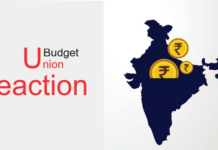
Some Indian banks, especially state-run lenders, may end up on the losing side in the competition with financial technology firms, said Ronit Ghose, global sector head for banks at Citi Research.
While India is a huge fintech opportunity, it may take a long time to become the next China, Ghose told Saloni Shukla in an interview. Edited excerpts:
China is dominating the global fintech space, but overall fund flows have slowed down. Is that likely to continue and where does India stand?
If you look at fintech investments in 2016, it was split between China and the US which accounted for 80% of global fintech VC investments.
This year, Q1 started slow and VC investing was down roughly 30% – Q1 looked quite weak as compared to last year, particularly in China. This year, the biggest deal done globally anywhere in the world is Paytm with its $1.8-billion funding.
In the first quarter, the fintech investments were just less than $3 billion globally. That one deal alone is more than half of what was done in Q1, so it is going to dominate the statistics for this year. We have done several meetings with investors and almost all of them are asking about fintech or digital wallets.
Does this deal put India on the global fintech map?
Totally. India has been all about potential and opportunity in so many sectors, be it the consumer-led sectors or banking and it’s same with fintech, particularly the consumer-led fintech.
When you look globally, China is the home today of consumer fintech. Looking ahead, the big opportunity at the global level is India, not just because of the large number of people but also the huge increase in telecommunication connectivity. If you look five years from here, today as a fintech investor, India is a huge opportunity.
Will India be the next China?
No, not in the next few years. India is really exciting because China is done. We know that China is huge, it will still keep growing … there is no uncertainty around China. 70% of the Indian banking market is PSU and it’s the same in China where fintechs have come in and the banks have been almost asleep.
In India, tier 1 cities are like China, but once you get out of those they are not like China. Is India a huge potential for opportunity? Absolutely. But how does potential become reality? There are lots of road bumps.
You mentioned Chinese banks were caught napping amid the fintech onslaught. What is your view on Indian banks?
The fact that India is eight years behind China is a huge advantage for Indian banks because, whether you are public or private sector, you are aware of this development. When the fintech wave hit China, banks didn’t know what was going on. So, the Indian banks have the advantage of being able to learn and adapt.
In this battle to gain market share, who is going to be the winner?
This could be an opportunity for some of the private sector banks to gain market share. So, it won’t be like all the banks lose and fintechs win. But the biggest problem for private sector banks is that they work on a different business model and a different regulatory model than fintech.
If as a fintech you get a billion dollar funding and you have a huge customer base, you can spend the next five years not making any money because their valuation will go up with the number of clients.
But if banks spend five years losing money, they won’t trade four times book. Banks are not really run by people who can move fast and break things; you will get fired or taken over and that is completely opposite when it comes to fintech.
Almost all Indian banks are struggling with the bad loan problem. Will they be able to compete with the nimble-footed fintech?
The banking system overall has a challenge, but you don’t see as much market share given up as in China. Indian banks are full of bad loans, particularly the PSU banks.
If you have couple of billion dollars of bad loans in your balance sheet, your immediate problem is: I need to recapitalise, I need to fix that legacy problem. So will they be thinking about the future? You haven’t still recognised your past problems.
The Indian banking system is quite heterogeneous and there is huge diversity. So, there will be some winners and plenty of losers.
Source: ET tech


















